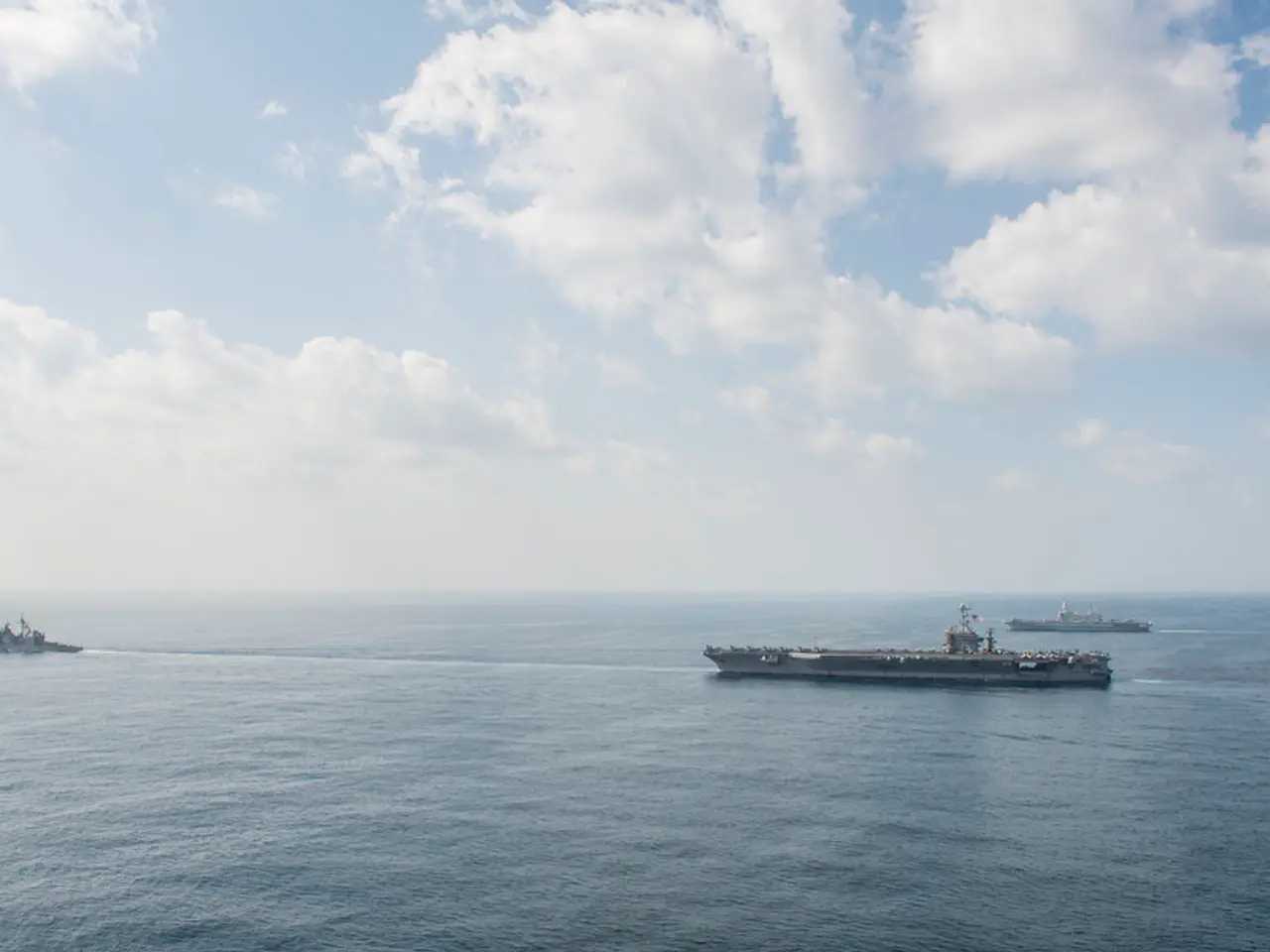Massive Waves Reach Heights of Five Metres; Disruption in Maritime Activity Heading to Helgoland
Storm Disrupts Shipping Traffic in the German Bight
The German Bight is bracing for disruptions in shipping traffic as a storm system approaches from the North Sea, predicted to bring strong winds, heavy storms, and waves of up to five meters high on Tuesday.
The storm is expected to cause temporary reductions in shipping traffic flow efficiency, increase navigational caution, and delay times in the region.
Several shipping companies have already taken precautions, canceling trips between key destinations. The "Halunder Jets" of the FRS Helgoline company, the "MS Adler CAT" (Adler-Schiffe), the "Funny Girl" (Adler-Eils), and multiple ships operating between Cuxhaven and Helgoland have all suspended their services due to the predicted weather conditions.
Reederei Cassen Eils has also canceled the trips of the MS "Nordlicht II" and the MS "Helgoland". The trips between Büsum and Helgoland have been significantly impacted, with numerous cancellations reported.
The German Weather Service has issued warnings for the region, indicating that the storm could lead to navigational warnings and restrictions, temporary port or channel closures, and departure/arrival delays. Vessels may be rerouted to avoid hazardous seas.
The storm could also exacerbate existing congestion challenges in northern European maritime hubs such as Bremerhaven and Hamburg, where current congestion is mainly due to labor shortages, water levels, and trade tensions. The storm could impede vessel movements, berthing, and inland barge traffic, leading to further delays.
Cargo planning and logistics could also be disrupted due to longer transit times, port waiting, or the need to avoid storm-affected zones until conditions improve.
Historically, storms in the German Bight have caused similar disruptions, including temporary port or channel closures, departure/arrival delays, and rerouting of vessels.
While no direct recent sources specifically quantify the storm's localized impact in the German Bight beyond routine navigational warnings, it is clear that the approaching storm system will have significant implications for shipping traffic in the region.
Environmental-science experts studying the impact of storms on marine ecosystems might observe increased wave heights, affecting various species in the German Bight. The unfavorable weather conditions could also impair the science of meteorology, as measurements such as wind speed, precipitation, and air pressure might become difficult or impossible to gather accurately during the storm.








